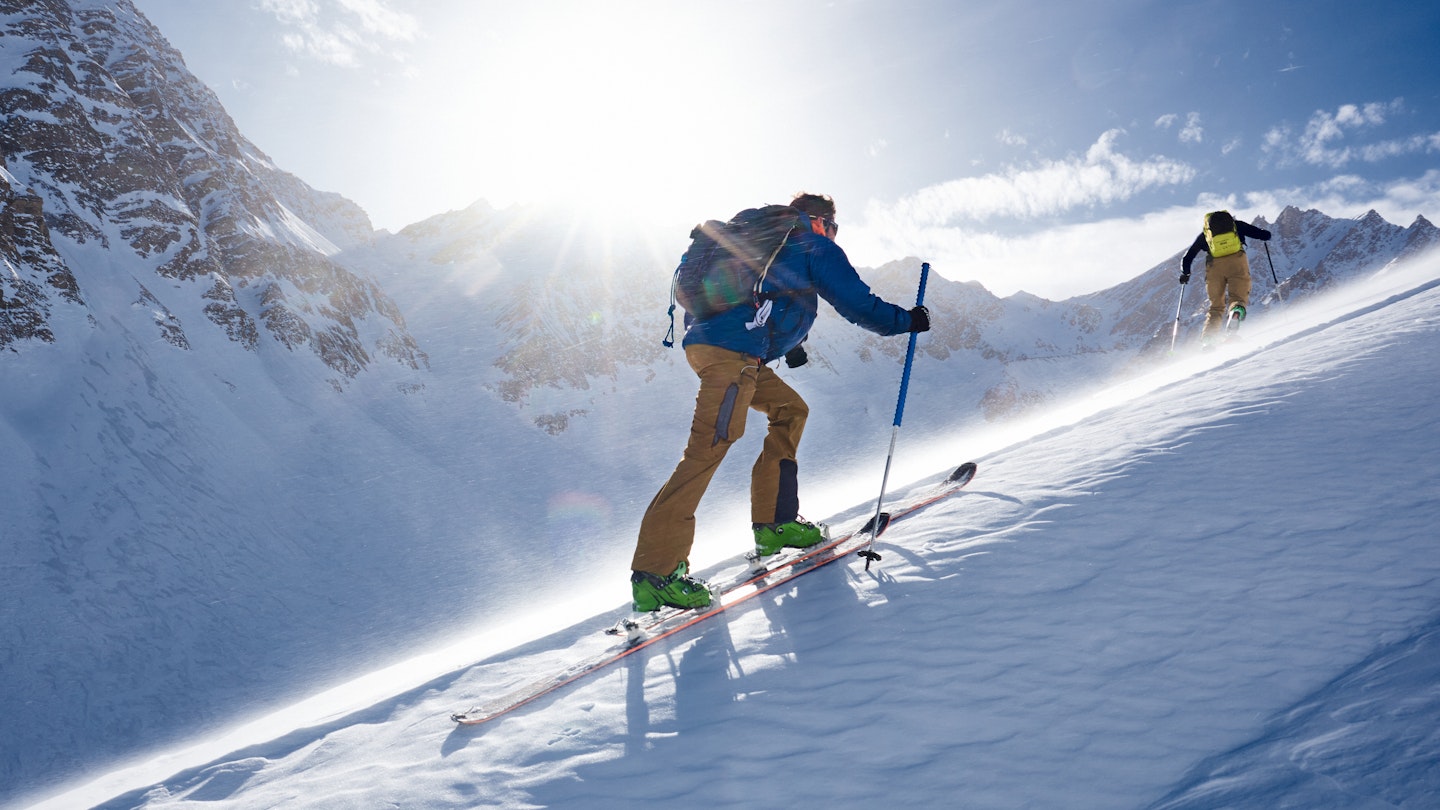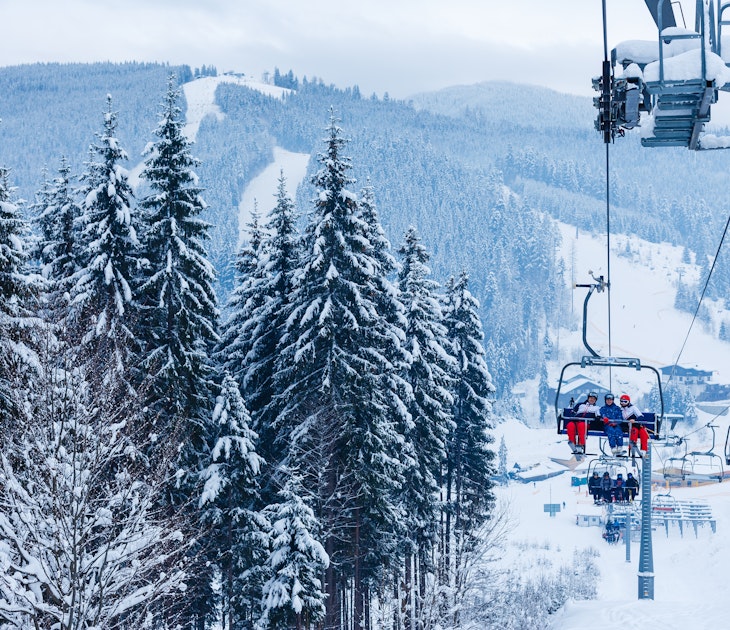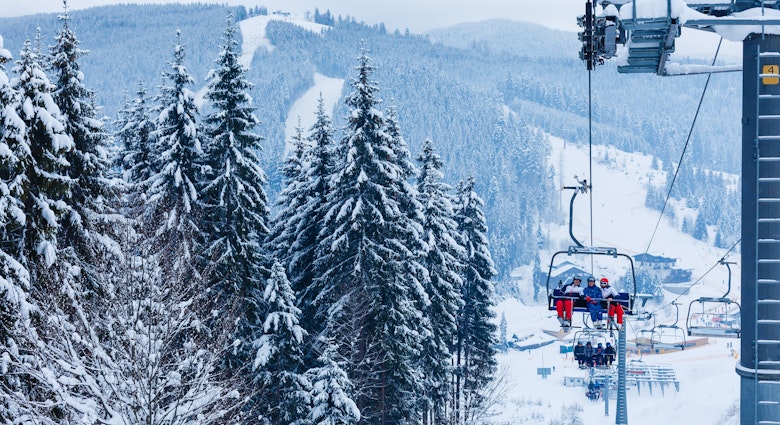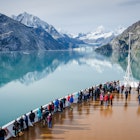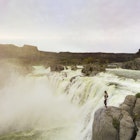Winter sports involve all kinds of exhilarating sensations: a sharp breeze rushing past your face, bright snow stinging your eyes, the merriment of après-ski.
Oh, and the palpitations when you first set sights on ski-pass prices.
It’s true that skiing and snowboarding don’t come cheap – but for those of us who don’t plan on ordering room service to our luxury ski-in suites, there are many ways to lighten the costs. These 10 budgeting tips can have you hitting the slopes without having to take out a second mortgage.
1. Perfect your timing
To bag a bargain ski pass, look into your destination’s off-peak season, sleuth out the dates of local school holidays (to avoid them) and, if possible, steer clear of the busy Christmas period. Picking your ski time is equally important as picking the right resort, with ski passes usually cheaper at the beginning and end of the season (keeping in mind that snow cover can be an issue), as well as during the post-new-year lull in January. Remember, no matter the time of year, there’s always somewhere in the world you can ski.
2. Seek out lesser-known slopes
It’s true that the biggest-name resorts are packed for a reason – but venturing a little off-piste with your resort choice not only means fewer crowds on the slopes but also potential savings. You can find bargains in far-flung centers that are often less accessible – though savvy skiers will note that certain resorts within a snowball’s throw of the big hitters offer similar terrain for a fraction of the cost. A day’s lift ticket at Cooper ski resort in Colorado, for example, is roughly half the price of neighboring Copper Mountain. Even amid the well-carved ranges of Western Europe you'll find great budget-friendly ski resorts that are just as rewarding as the big names. You just have to be willing to branch out.
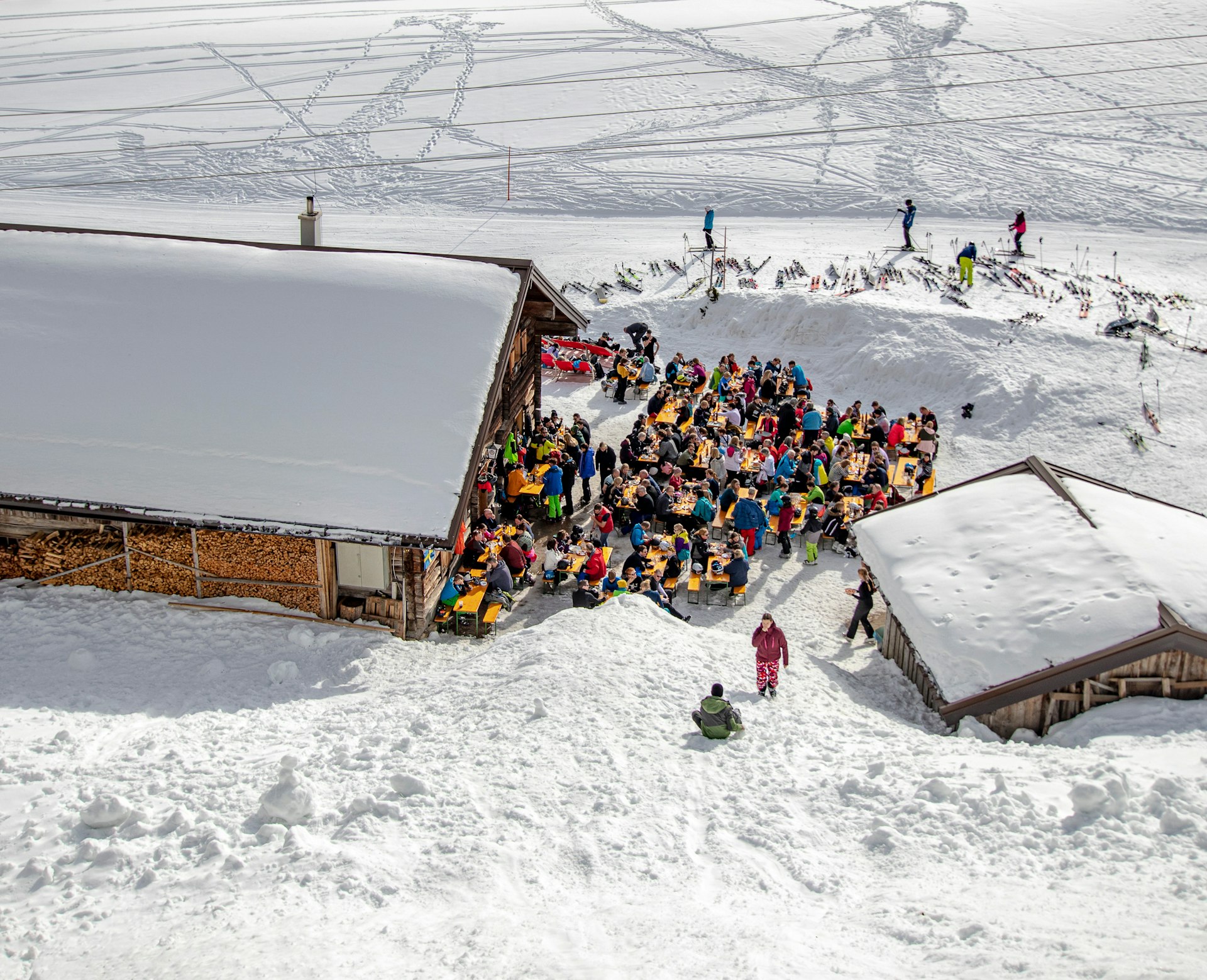
3. The higher you stay, the more you’ll pay
A hotel way up in the snowy drifts – and the privilege of skiing right out of the door – will cost you, though accommodation in the nearest town will generally be a much fairer deal. And don’t fret about distances: many ski resorts have free bus-transfer services to the nearest lift and to neighboring resorts; check with the tourist office and make use of them. Those who don’t mind sharing their personal space after a day on the slopes should also check out budget-friendly dormitory accommodation.
4. Choose your flight wisely
Even amid the seasonal rush for flights to snowy spots, budget airlines can still offer bargain fares. Just try not to get get spiked by extra charges to bring your skis or snowboard on the plane. If you have your own gear, consider an airline that won’t charge you to stow them in the hold: Swiss, Virgin Atlantic and Air Canada all have reasonable allowances for sports equipment. Booking your flight at least two months in advance is a good rule of thumb to get the best prices (though this is always a topic of debate), remembering that flights can often be cheaper on weekdays.

5. Go for secondhand gear
Skis, boards, boots, jackets, waterproofs…there’s plenty you need – and it doesn’t come cheap. Don’t wait to rent or buy your gear at the resort, where you’ll have to pay whatever price management sets. Plan ahead and grab secondhand bargains on sites like Craigslist, which are sometimes cheaper than renting for two weeks: plenty of overenthusiastic one-timers are keen to offload their seldom-worn ski boots for a pittance. Provided you aren’t too proud to ski in a neon patchwork ski jacket reminiscent of the 1970s, you can easily get kitted out – for less.
6. Package it up
Rolling together your flights, accommodation, lift pass and equipment rental can in some cases result in some heavenly bargains. Check Ski.com or SnowVentures to see if you can save by opting for a package deal.
7. Know your discounts
Plenty of resorts have discounts for early-bird ski-pass buyers, students, disabled skiers, families, large groups, long stayers and over-70s – who, at a handful of resorts including Grandvalira in Andorra and Timberline in West Virginia, ski completely free of charge.
8. Budget your après-ski
Who’s picking up the tab for those evening Jägermeisters? Winter-sports fans get brainwashed into believing that their steaming thimbleful of Glühwein (mulled wine) is an essential part of the après-ski experience, even at €4 per glug. If you’re staying in self-catering accommodation, it’s easy to warm your cockles with DIY treats, so give pricey cafes a wide berth – or, at the very least, time your visit with happy-hour deals, when drinks are cheaper. Alternatively, put that snow-proof clothing to good use by having a picnic in the snow: taking in mountain views is a lot more appealing than tottering in your ski boots over a brasserie’s slippery floor.
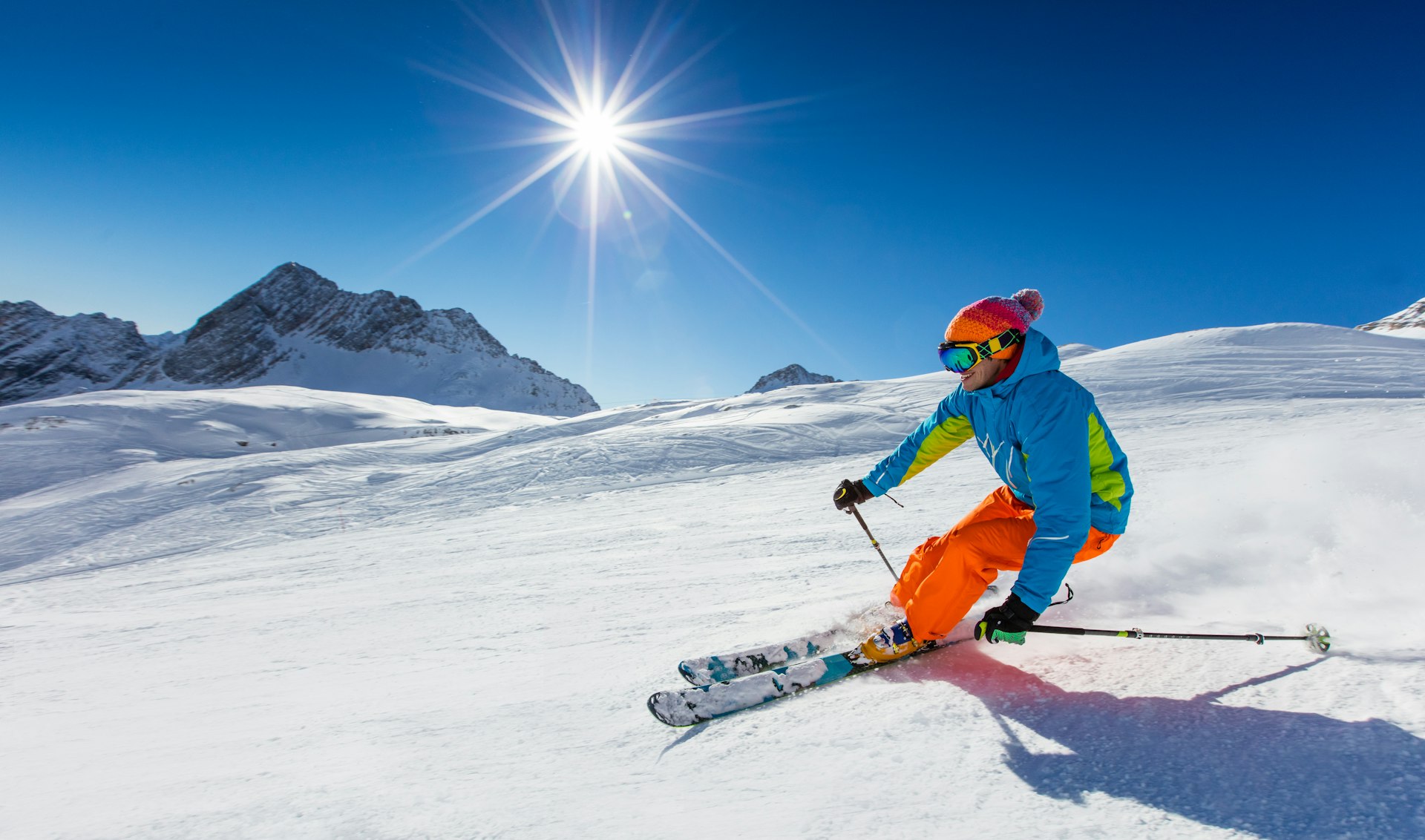
9. Be flexible with your timing
Shaving a day or two off your ski pass can save some cash – and you needn’t lose out on ski time if you know where to look. For instance, the French Alps have plenty of easy cross-country skiing tracks (such as around the picturesque Lake Montriond) that don’t cost you a penny to use: perfect to slice a day off your ski-pass needs. And over in Hawaii – yes, there are ski slopes there! – you can ski Mauna Kea for nothing, as long as you have your own ski gear and a buddy with a four-wheel drive. Alternatively, get better value by booking a really long trip: a ski pass for the whole season is much cheaper per day than a week-long one.
10. Get a ski job
If long-term skiing is your dream, why not deploy some good old-fashioned elbow grease? Ski resorts need chefs, cleaners, nannies, au pairs, lift operators, runners and a whole host of other enthusiastic workers. The pay can be extremely light, but in return you can often bag free ski passes, equipment rental and accommodation. Kick off your search at sites like Ski Resort Jobs or CoolWorks.

